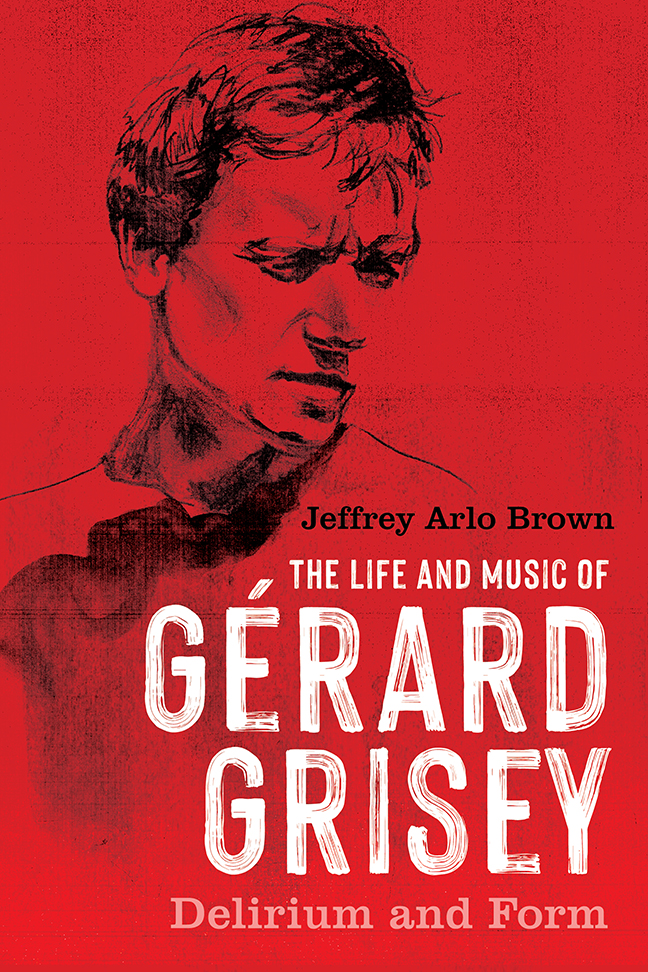Book contents
- Frontmatter
- Contents
- List of Illustrations
- Acknowledgments
- One The Lost Voice (1946–61)
- Two The Carnal Shell (1961–65)
- Three The Rhythm of Love (1965–67)
- Four Exchange Beyond Language (1968–70)
- Five The Silence that Attracts (1970–72)
- Six The Sensual Embrace (1972–74)
- Seven Ultimate Fusion (1974–78)
- Eight Astarte (1978–79)
- Nine Extreme Pleasure, Extreme Pain (1980–82)
- Ten The Grains of Sound (1982–86)
- Eleven Absolute Love (1986–88)
- Twelve Seduced by the Star (1988–91)
- Thirteen Suggestions of the Infinite (1991–96)
- Fourteen Nut (1996–98)
- Fifteen Berceuse
- Appendix: Recordings of Music by Gérard Grisey
- Bibliography
- Index
Two - The Carnal Shell (1961–65)
Published online by Cambridge University Press: 17 December 2023
- Frontmatter
- Contents
- List of Illustrations
- Acknowledgments
- One The Lost Voice (1946–61)
- Two The Carnal Shell (1961–65)
- Three The Rhythm of Love (1965–67)
- Four Exchange Beyond Language (1968–70)
- Five The Silence that Attracts (1970–72)
- Six The Sensual Embrace (1972–74)
- Seven Ultimate Fusion (1974–78)
- Eight Astarte (1978–79)
- Nine Extreme Pleasure, Extreme Pain (1980–82)
- Ten The Grains of Sound (1982–86)
- Eleven Absolute Love (1986–88)
- Twelve Seduced by the Star (1988–91)
- Thirteen Suggestions of the Infinite (1991–96)
- Fourteen Nut (1996–98)
- Fifteen Berceuse
- Appendix: Recordings of Music by Gérard Grisey
- Bibliography
- Index
Summary
As an adult, Grisey made frequent notes describing his dreams and state of mind. These jottings are often impossible to read. When they are legible, they offer valuable insights into his psychology. One such document, undated though likely from the mid-1990s, contains what seems to be a list of the desires and fears that motivated his id, in his own perception (or that of a psychoanalyst):
• Rivalry with and imitation of my father
• Fear of solitude (death of my grandmother), fear of death
• A taste for pleasure, discovery, beauty
• Substitution of one woman for another (if not pornography, fantasies, images)
• A taste for risk, challenges, exceeding one's limits (going all the way)
• A taste for play and the good things in life
• Fear of homosexuality (= violence)
The first item on the list is classically Freudian. The fourth item, Grisey's awareness of his own need to be surrounded by women, will become relevant, both biographically and musically, in his adult life. To the contempo-rary reader, it is Grisey's “fear of homosexuality,” and the “equals violence,” that raises questions about his childhood.
But none of Grisey's many friends, lovers, and confidants could recall the composer mentioning that violence had been done to him. His written archives make no further mention of any such traumatic event. Guy Lelong, a writer and openly gay friend of Grisey's later in the composer's life, said that Grisey was not at all homophobic.
The abstract idea of rape makes the occasional appearance in Grisey's journals and in his writings on music. In one diary entry from the early 1980s, he wrote in a mysterious poem, “The Unknown rapes me.” In his 1982 article “Le devenir des sons” (“The Becoming of Sound”), he said that “musical form has something terrifying about it: it contains voyeurism and rape … .” He was pointing out that if we don't want to see an image, we can close our eyes; if we don't want to hear a sound, we can't close our ears, because they don't have lids. Sound penetrates us whether we consent to it or not. Like sex, sound is a pleasurable experience that must be entered into willingly. Otherwise, this experience is distorted into violence. Throughout his life, Grisey was extremely sensitive to unwanted noise.
Information
- Type
- Chapter
- Information
- The Life and Music of Gérard GriseyDelirium and Form, pp. 11 - 27Publisher: Boydell & BrewerPrint publication year: 2023
